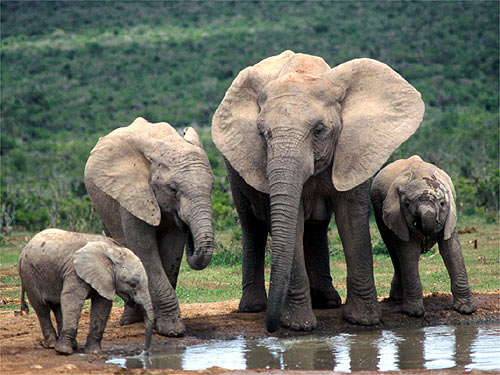A call has gone to the international conservation community to protect the Sepintun forest, a haven for Sumatran elephants, which are critically endangered as their forest home is being destroyed.

Some of the last Sumatran elephants are said to roam the forest of Sepintun – a habitat that is being trashed for oil palm, pulp and rubber plantations, and one which conservationists insist urgently needs to be protected from the threat of industrial plantations.
The Sumatran elephant (or Elephas maximus sumatrensis) is one of three recognised subspecies of the Asian elephant, and native to the Indonesia island of Sumatra. It is a sub-species of the Asian elephant which includes the Indian elephant, the Sumatran elephant, the Sri-Lanka elephant and the Borneo elephant.
The Sumatran elephant is now said to be extremely rare, with estimates in 2,000 putting Sumatran elephant numbers at just over 2,000 individuals. However, the Sumatran elephant population has severely declined as they have reportedly lost more than 80% of their natural habitat to deforestation for palm oil plantations.
Reinhard Behrend of Rainforest Rescue says: “The owners of the plantations on their former habitat consider the elephants to be vermin. Yet there are still forests where the elephants can live: one of them is the forest of Sepintun in Jambi province. This last fragment of primary forest is home to a small herd of female elephants and their calves. They still follow their ancient trails, many of which now lead through plantations.
“While the elephants themselves are protected, companies and authorities are denying that they exist and want to clear their forest for a plantation. That would spell the end of the critically endangered herd.”
Feri Irawan of Marhoni states: “No more than 150 elephants currently live in all of Jambi province. They are critically endangered by the oil palm, pulp and rubber plantations and coal mines that are eating away at their habitat. All but 1,500 hectares of Sepintun’s forests are gone.
“However, as far as companies and the authorities are concerned, the elephants do not exist: Only by denying that elephants still live in the region will they be able to clear the forest of Sepintun for plantations.”
